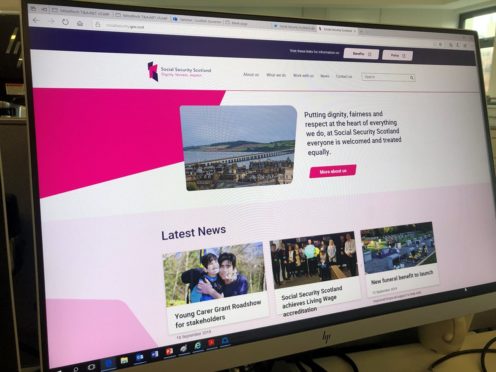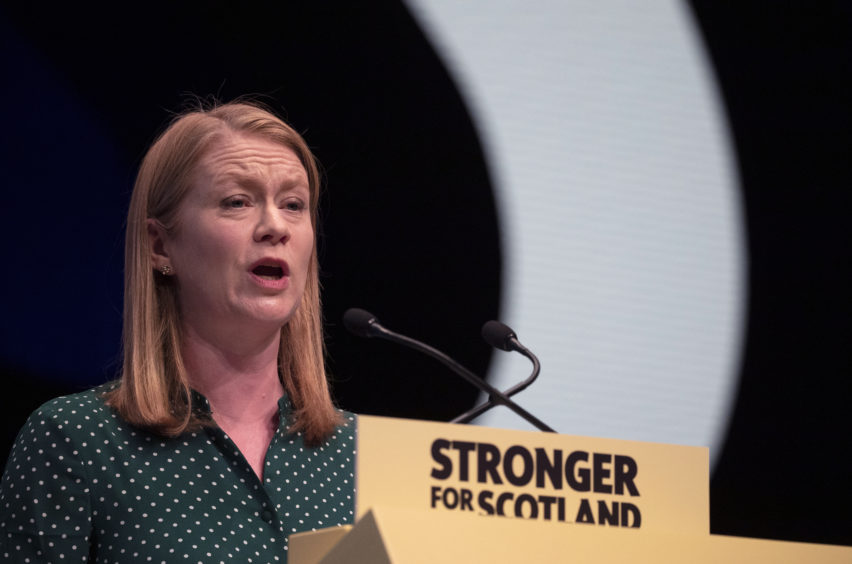Disabled welfare claimants are facing anxiety and “a lot of concern” over ongoing delays to the rollout of Scotland’s new social security payments, a leading campaigner has warned.
Some 11 key benefits will be transferred to Holyrood in one of the biggest handovers of responsibility since the Scottish Parliament was established, although the process has so far been mired in delays and problems.
The Scottish Government was forced in April to delay indefinitely the handover of Child Disability Payment and the replacement for Personal Independence Payments, in the wake of the coronavirus pandemic.
Scottish Child Payment, which was due to be introduced from this autumn, will also be delayed but the Scottish Government has said it will focus resources to deliver it “as soon as practicably possible”.
The introduction of Scottish Child Payment had itself previously forced ministers to push back plans to create new Disability Assistance for Older People and the Scottish Carers’ Allowance payments.
The complexity of the Scottish system, which must align with the benefits remaining under the control of Westminster’s Department for Work and Pensions (DWP), has been blamed for contributing to delays.
Andrew Strong, assistant director of Health and Social Care Alliance Scotland, said the organisation was “well behind” the devolution of social security entitlements and “really values” the Scottish Government’s pledge to put in place a system “along the lines of dignity, fairness and respect”.
However, he said the current delay was “desperately disappointing” for everyone involved and the current situation could cause “a lot of concern” for disabled people, carers or those living with long-term conditions.
“I think there is a general anxiety at the moment, anyway,” Mr Strong said.
“People are experiencing anxiety around Covid and the fact that it affects disabled people more than it does others.
“But, at the same time, not knowing what is happening with this system could create a lot of concern. I think people have been patient to date so I think they will understand why this is happening, why this delay is happening.
“However, and I think we share this in common with our members, we are desperately disappointed it is happening.”
Mr Strong said many of the Alliance’s members have had “really poor” experiences of dealing with face-to-face interviews or accessing DWP services.
The Scottish Government has vowed to take a markedly different approach in its delivery of disability benefits, including having no face-to-face assessments and decisions being informed by the judgement of health and social care practitioners.
The current delay means the agency agreement with the DWP to run Personal Independence Payments and some other entitlements will continue.
The Scottish Government has not yet given a solid deadline for when work can fully resume on devolving the payments or when the switch-over is likely to be completed but Mr Strong said he hoped it would be “as soon as possible”.
He has called for more work to be done to gather input from people with experience accessing the payments and believes the current delay “gives us more time to do work with the people affected most by the change, to ask what they want from the system”.
“There’s nothing to say that individuals and organisations couldn’t be in touch with the Scottish Government about some of those issues now,” Mr Strong said.
“They’ve already done a lot of detailed work but I think there needs to be more conversations about criteria, for example.
“Organisations like ours are already in touch with our members so there is nothing to stop that sort of engagement happening right now.”
It was revealed earlier this year that the cost of establishing Scotland’s new benefits system, which will be run by Dundee-based Social Security Scotland, had more than doubled to £651 million.
A 2018 report by the Auditor General found the Scottish Government had failed to clearly estimate the full cost of taking control of the powers.
Auditors warned it would cost “much more than £200 million (contributed by the UK Government) to implement” and that additional costs will have to come from the overall Scottish budget.
The report came days after ministers were ridiculed for being “under-prepared” for the handover, as it was revealed the first wave of 750 jobs being recruited in Dundee would be housed at a then yet-to-be secured “interim” office.
Social security secretary Shirley-Anne Somerville failed to respond to a request for comment on whether she shares the concerns of charity and third sector bodies, and what work can be done now to ensure the switch takes place as soon as possible.
Instead, a Scottish Government spokesman said: “People have repeatedly told us that the UK Government’s disability benefits system does not work for them.
“That is why we are building a fair and transparent social security system that works for people, not against them, and we are committed to delivering devolved disability benefits as soon as it is safe to do so.”
The spokesman said the Scottish Government “remains on course” this year to deliver the Carer’s Allowance Supplement, Scottish Child Payment, Child Winter Heating Assistance, and the Job Start Payment – to support unemployed young people.
“In the meantime we have continued to engage remotely with stakeholder organisations and people with lived experience of social security while Covid-19 restrictions have been in place,” he added.
“This engagement, through a range of internal and external forums, is part of our work to ensure that devolved disability benefits will better meet the needs of the people they are designed to support.”

